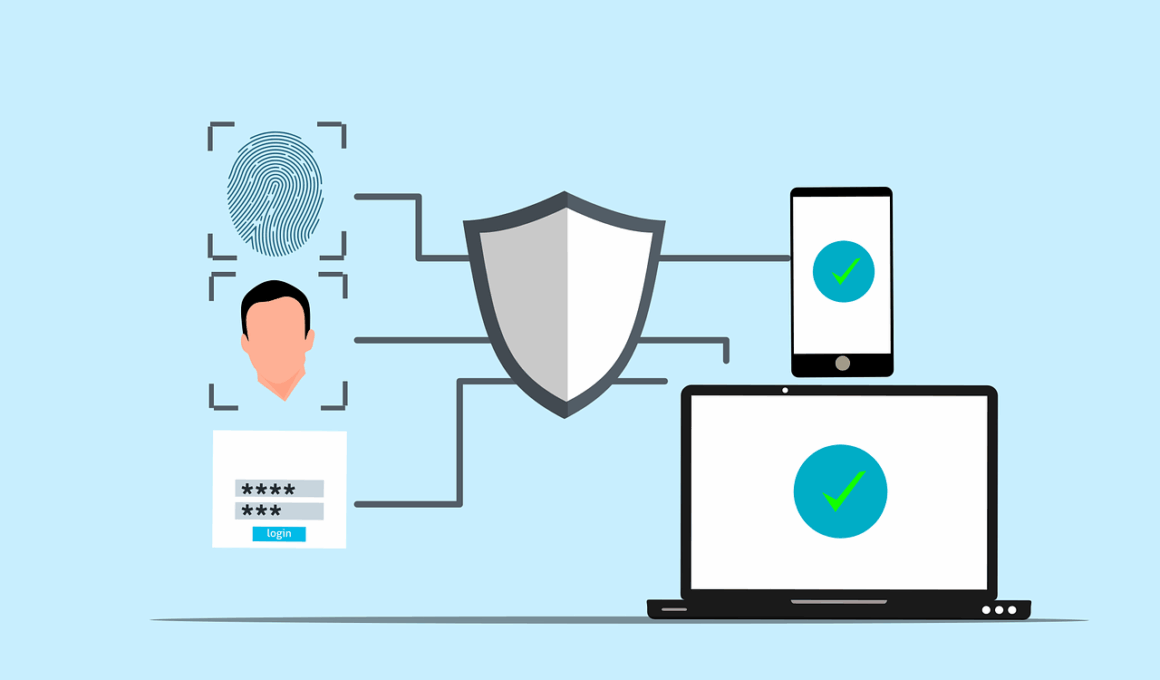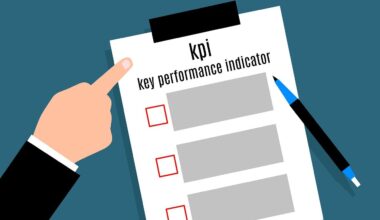Securing Mobile Access to CRM Systems: Challenges and Solutions
The increasing reliance on mobile devices for accessing Customer Relationship Management (CRM) systems presents unique security and privacy challenges. With the rise of remote work and BYOD policies, organizations are exposed to various risks associated with mobile access. Organizations must adopt a comprehensive approach to ensure data integrity and user privacy. The first challenge relates to device security. Mobile devices are often lost or stolen, creating opportunities for unauthorized access to sensitive data. Ensuring that these devices have robust security features is essential to mitigate this risk. Secondly, organizations face challenges in maintaining compliance with regulations governing data protection, such as GDPR or HIPAA. Organizations need to ensure that their mobile access solutions comply with these regulations to avoid significant penalties. Lastly, ensuring secure data transmission over public networks is crucial in protecting customer data from interception by malicious actors. Therefore, companies must invest in encryption technologies and other measures to safeguard data in transit. Education and training for employees on security best practices also play a critical role in reducing vulnerabilities. A holistic security framework is essential for addressing these challenges effectively.
Common Security Threats
Businesses must be aware of common security threats that can arise with mobile access to CRM systems. One prevalent threat is phishing attacks, where attackers trick users into revealing sensitive information. This can happen through deceptive emails or messages that appear legitimate. Another significant threat is malware, which can infiltrate devices and compromise data security. Organizations must deploy robust antivirus solutions to combat these threats effectively. Additionally, insecure Wi-Fi networks can pose serious risks, as attackers can intercept unencrypted communications between mobile devices and CRM systems. Employees should be educated on the dangers of connecting to public Wi-Fi without using a Virtual Private Network (VPN). Insider threats also pose a challenge, where employees misuse their access to harm the organization or leak sensitive data. Regular audits and monitoring of access can help mitigate these risks. Organizations may also face the challenge of managing multiple mobile platforms, each with different security protocols. It is essential for firms to adopt a unified security policy that encompasses all devices, ensuring secure access to their CRM systems. Cultivating awareness about these threats helps strengthen security measures and reduces vulnerabilities significantly.
Effective authentication methods are essential for securing mobile access to CRM systems. Traditional username and password combinations are often inadequate due to their vulnerability to various attacks. Organizations should consider implementing multi-factor authentication (MFA) to enhance security. MFA requires users to provide additional verification methods, such as a one-time code sent to a phone, thus adding another layer of protection. Biometric authentication, such as fingerprint scanning or facial recognition, has emerged as a robust option, particularly for mobile devices. These methods leverage unique physical traits for verification, making unauthorized access significantly harder. Additionally, session management plays a crucial role in maintaining security; organizations should ensure that sessions are timed out after periods of inactivity. Customizing access levels based on user roles enhances security by limiting exposure to sensitive data. Companies should also periodically review and update their authentication policies to align with evolving security trends. Investing in secure Identity and Access Management (IAM) solutions can streamline this process, providing businesses with better control over user access to CRM systems on mobile devices. Implementing these authentication strategies not only protects data but also fosters a culture of security within organizations.
Encryption and Data Protection
Encryption is a fundamental component in ensuring data protection for mobile access to CRM systems. Data stored on mobile devices, as well as data transmitted over networks, must be encrypted to prevent unauthorized access. Organizations should adopt end-to-end encryption strategies for protecting customer information, ensuring that data remains confidential throughout its lifecycle. Additionally, encrypted communications provide an extra layer of security against eavesdropping and man-in-the-middle attacks. Companies must also ensure that any third-party applications accessing the CRM system comply with strict encryption standards. Implementing a data loss prevention (DLP) strategy is vital in identifying and preventing unauthorized access or transmission of sensitive data. Mobile Device Management (MDM) solutions can facilitate encryption and DLP initiatives, providing centralized control over device security and compliance. Regularly updating encryption protocols is essential to stay ahead of potential threats, as cybercriminals continually evolve their strategies. Organizations should invest in employee training to ensure all users understand the importance of encryption for protecting sensitive data. Incorporating these encryption and data protection measures enhances the overall security posture of CRM systems accessed via mobile devices, safeguarding valuable customer information.
Regular security assessments are crucial for maintaining the integrity of mobile access to CRM systems. Conducting vulnerability assessments and penetration testing helps identify potential weaknesses in the security framework. These proactive measures enable organizations to address issues before attackers exploit them. Furthermore, it is essential to monitor network traffic for anomalies that may indicate security breaches. Implementing intrusion detection systems (IDS) can assist in identifying unauthorized access attempts and malicious activities in real-time. Fortifying the perimeter defenses of CRM systems can help minimize exposure to external threats. Organizations must also prioritize regular software updates and patches, as they often contain crucial security improvements. Establishing an incident response plan ensures that companies are prepared to handle breaches effectively, mitigating damage and restoring functionality quickly. Employee awareness programs play a critical role in fostering a culture of security and vigilance. Regular security training can empower employees to recognize security threats and adhere to best practices. Commitment to ongoing security assessments and improvements enhances the protection of CRM systems against evolving threats, fostering trust with customers and stakeholders alike.
Legal and Compliance Considerations
Organizations must navigate a myriad of legal and compliance considerations when securing mobile access to CRM systems. Data privacy regulations, like GDPR and CCPA, require businesses to implement specific measures to protect customer data. Non-compliance can lead to hefty fines and damage to an organization’s reputation. Thus, conducting regular audits to assess compliance is imperative. Organizations must also consider data residency requirements, as different jurisdictions impose specific constraints on data storage and handling. Ensuring that customer data remains in compliance with these regulations is critical to avoid legal repercussions. Additionally, establishing clear data access policies helps govern who can access CRM data and under what conditions. Implementing role-based access control (RBAC) enables organizations to restrict data access based on job responsibilities, minimizing exposure to sensitive information. Documenting data handling practices and maintaining transparency with customers regarding how their data is used further aids in compliance efforts. It is also essential to stay updated on changes in regulations, as non-compliance can result in costly penalties. Engaging legal experts who specialize in data privacy can further bolster compliance efforts and ensure a robust legal framework for mobile access security.
A comprehensive mobile security strategy involves continuous improvements to combat emerging threats in the CRM landscape. Collaborating with security vendors and experts can provide organizations with the latest insights and tools to enhance their security measures. Regularly evaluating risks and adapting security policies ensures that organizations are ready to counteract new vulnerabilities as they arise. Employee training and awareness programs must also evolve, incorporating the latest information about security threats, thereby empowering personnel to act responsibly. Additionally, utilizing advanced analytics and machine learning technologies can enhance threat detection capabilities, enabling companies to identify and react to incidents promptly. Companies should prioritize responsiveness and adaptability, allowing them to revise their strategies as technology and threats change over time. It is also important for organizations to recognize the significance of fostering a culture of security across their workforce. Encouraging employees to embrace security as a shared responsibility can reduce the likelihood of negligent behaviors leading to data breaches. By investing in comprehensive, adaptable mobile security strategies, organizations can safeguard their CRM systems and protect customer data effectively, thus reinforcing trust and integrity in their business operations.
Conclusion
Securing mobile access to CRM systems is a complex yet essential endeavor for organizations today. The ever-evolving threat landscape demands a proactive approach, encompassing device security, data encryption, and robust authentication methods. By understanding the common security threats associated with mobile access and implementing measures to mitigate them, businesses can safeguard sensitive data effectively. Regular security assessments, compliance with legal regulations, and fostering a culture of awareness are critical components of a successful security strategy. Organizations must remember that security is not a one-time effort; it requires ongoing commitment and vigilance. Staying informed about emerging threats, regularly updating policies, and investing in employee training will ensure that security measures remain effective and relevant. By prioritizing security in their mobile CRM access strategies, organizations can protect their valuable customer information while enhancing overall trust and satisfaction. Ultimately, a robust security framework promotes organizational integrity and instills confidence among stakeholders. Building a secure environment for mobile CRM users is not just a technical issue; it is a strategic necessity in the digital age, demonstrating a company’s commitment to securing customer relationships.


